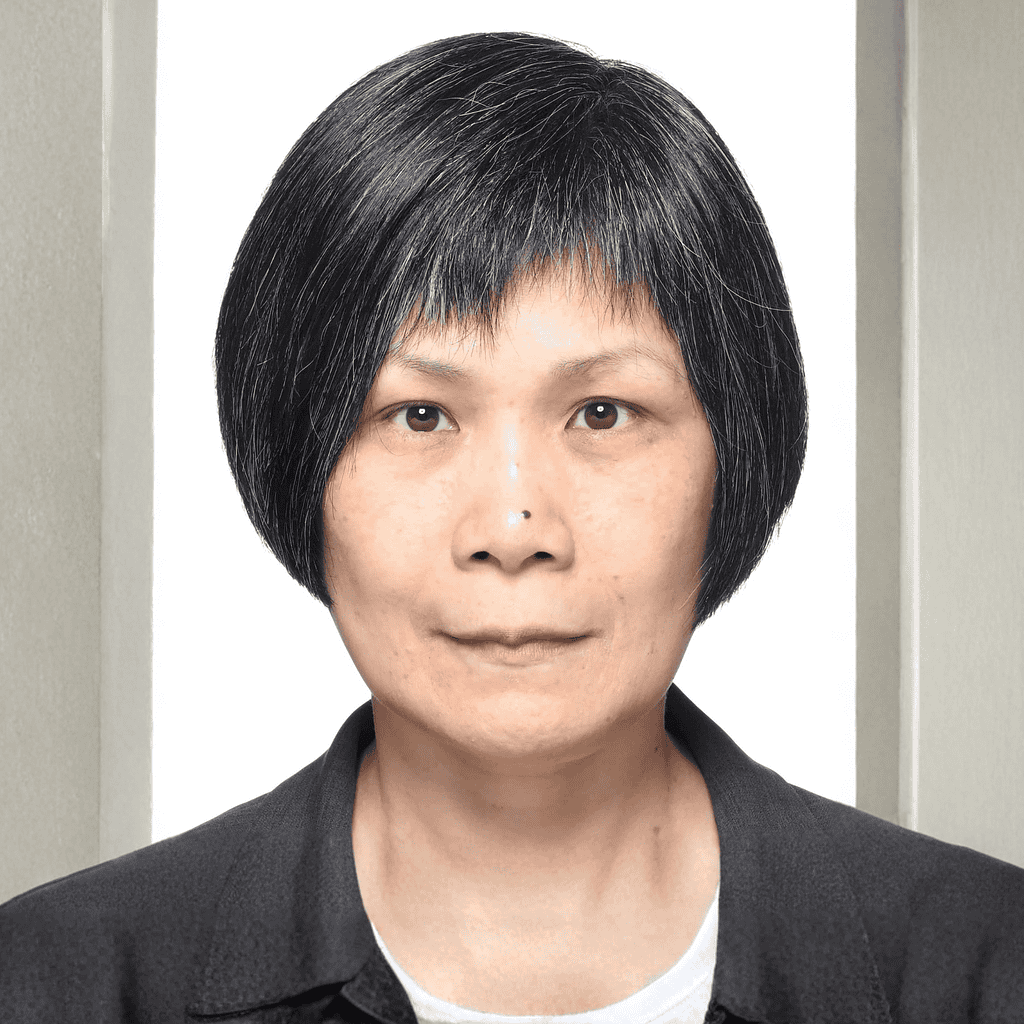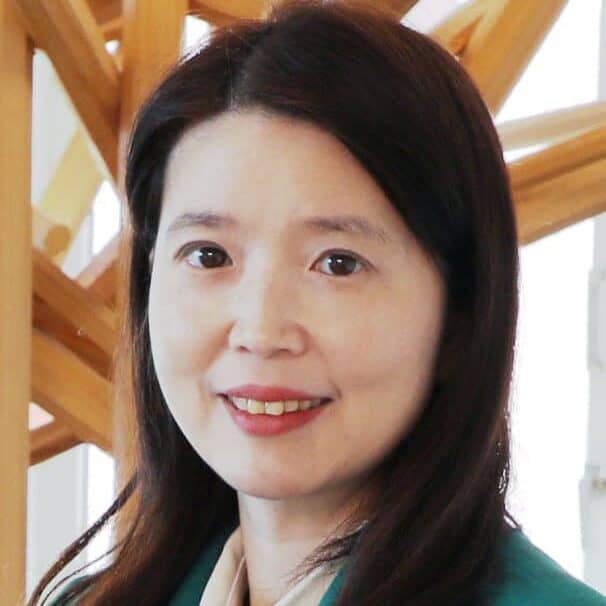One of the strongest economies in Asia, Taiwan did relatively well in 2020, both economically and in handling the pandemic. The strength of its tech sector represents both an opportunity and a challenge for the near future, as do potential global and regional trade developments. Leaders from the Central Bank of Taiwan and five banks active on the island took up these topics and more in a recent Global Finance roundtable.
Andrea Fiano: The Taiwanese economy performed remarkably well during the pandemic. How were different sectors affected?
Dr. Yih-Juan Wu, Director General, Central Bank of Taiwan: According to our bank’s forecast, the Taiwanese economy is much better than other major nations this year because we have a strong high-tech sector, whose exports outperform many other neighboring Asian countries. As in other countries, Covid-19 has had a very adverse impact on the services sector because a lot of people cannot travel abroad, and tourists cannot come to Taiwan. As a result, all services had some kind of adverse impact last year. However, our goods exports performed relatively well. Taiwan’s situation is much better than other countries. Our daily life is just like normal. We expect that this year our economic growth will be better than last year. Private consumption, especially, may pick up momentum, and our exports remain relatively strong. And private investment will improve.

Yih-Jiuan Wu is director general of Economic Research at the Central Bank of the Republic of China (Taiwan), where she previously served as deputy director general. Wu holds a Ph.D. in economics from Iowa State University, and a bachelor’s degree and MBA from National Taiwan University.

Lim Him Chuan, General Manager, DBS Bank (Taiwan): It is indeed true that in 2020 we saw quite a resilient economic performance of Taiwan. That came mainly from the high-tech sector, because of the need for people to work remotely. If you look at the stock market in Taiwan, I think it performed really well. On the other hand, we have clients who have been quite affected, especially in the SME [small and midsize enterprises] segment and traditional goods. But in the recent few months, especially in Q4, things seemed to have improved. And we do think that there is a bit of a pickup going into 2021.
GF: What are the expectations for GDP growth, inflation and domestic consumption this year?
Lim Him Chuan: On the consumer-spending side, I agree with Dr. Wu. Since people cannot travel, it has affected people’s spending overseas. The good news is that in Taiwan, the government has been actively promoting domestic consumption. Spending vouchers caused a bit of a momentum in terms of private spending. But even then, spending in 2020 was a bit muted. With the recent new cases of Covid-19 emerging in Taiwan, there is also some concern about whether we will be able to fully contain the spread of the virus. We shall see. But I believe that 2021 will be a better year compared to 2020. The other side effect of the crisis is that the real estate market in Taiwan has picked up quite a lot. In part, it could be because many Taiwanese businessmen who used to travel overseas were back in Taiwan. With a lot of wealth on hand, they probably looked for investments in the real estate sector. Taiwanese enterprises are also seeing that Taiwan could be a good place to resume some of the production compared to other parts of the world. The demand for factory space in a full production capacity has emerged quite nicely, especially in Tainan, in Taichung, in Hsinchu, in Kaohsiung. Overall, as for the DBS forecast for Taiwan’s GDP growth in 2021, we are looking at 4.2% on the back of all these economic drivers.

Lim Him Chuan is general manager and CEO of DBS Bank Taiwan. Before joining DBS, Him Chuan was the group chief operating officer for DBS’ Institutional Banking Group and International Markets and held senior leadership roles in the Risk Management Group and Global Transaction Services, including steering the Basel Programme.

Sarah Chen, Executive VP, E. Sun Commercial Bank: If 2020 was a test, Taiwan has passed with flying colors. Taiwan still has very spectacular growth, especially in the technology and semiconductor sectors. Exports and investments outperformed, driven by IT and communications. Especially on the investment side, we see an increase in capex for corporate, especially high-end semiconductors, 5G and renewable energy. For this year and 2021, we expect Taiwan’s GDP to have a growth rate of over 3%. We think that the main reason for this growth is the recovering consumption momentum and the continued growth in exports. But we also see some downside risks, especially the uncertainty of the pandemic. Some sectors, such as the traditional and petrochemical industries, may suffer because of the Taiwan dollar appreciation. We think they have to change their structure in the future.

Sarah Chen is executive vice president of E.SUN Bank, supervising portfolio management in its Treasury Division. Prior to her current role, Chen was in charge of money market, foreign currency and fixed income management. She joined E.SUN Bank in 1995.
Jack Wang, Executive VP and Head Global Treasury Sales, CTBC Bank: I would just add a couple of observations. One leading force is investment from the ICT sector, or information and communications technology. Plus, all the sectors supporting ICT will increase our GDP. The petrochemical and the industrial sectors suffered a little bit last year. But if you look at the sectors globally, I think there’s a light at the end of the tunnel. We see some growth momentum there, especially in raw materials and oil prices. Everybody is talking about the K-shape recovery. Worldwide, I think ICT and conventional industrials, petrol, textile, basic materials, et cetera, will gradually move to the upper side of the K shape. At the bottom part of the K are leisure and some travel services, e.g. airlines as well as hospitality. If we continue to keep Covid-19 under control, I believe these sectors will gradually recover. Taiwan’s government moved fast to provide some sort of debt forebearance and liquidity support.

Jack Wang is head of Global Treasury Sales and executive vice president at CTBC Bank. Wang holds an MBA from the Ivey Business School at Western University, Canada.

GF: Mr. Phoo, how do you see the past year reshaping the economy?
Tony Phoo, Senior Economist, Standard Chartered: I think one should not overlook the fact that Taiwan semiconductors and ITC performed particularly well even before the pandemic. The reason being that the US versus China “tech war,” if you want to put it that way, has diverted some of this global demand toward Taiwanese producers. It is also one of the reasons we see reshoring activities. Therefore, Taiwan was benefiting from US-China trade tensions even before the Covid-19 pandemic.
On the other hand, Covid-19 acted as a catalyst. Back in the first quarter of last year, amid fears of serious supply-chain disruptions, the pandemic pushed a lot of Taiwanese producers to consider an alternative production cycle outside of China.
With the rollout of vaccines and as economies get accustomed to living with Covid-19, we should see the economy gradually open up. As a result, a lot of the demand for technology that was the result of the pandemic back in 2020 might be a one-off. So, we will unlikely see it repeated in 2021. We have also seen a surge in inventory demand post-lockdown because of the fear that [future] lockdowns [may] disrupt their production or manufacturing schedules. So, we see a lot of so-called precautionary demand. All of this might also repeat in 2021.
The Chinese economy continues to grow, and that should also help in terms of global demand for raw materials, infrastructure and construction projects. In short, we expect the Taiwan economy to rebound in 2021 in a range of 3% to 4%. Nonetheless, there will be challenging factors.

Tony Phoo is a senior economist at Standard Chartered (Taiwan), covering Taiwan and North East Asia. Phoo holds a master’s degree in International Economics, Banking and Finance from the University of Wales, Cardiff (UWCC) and an honors degree in Economics from the University of London.

GF: How did the pandemic impact the banking sector and what are the sector’s prospects this year?
Jonathan Lee, Analyst and Project Assistant VP, Taishin: We believe that 2021 will be a better year for several reasons. The first is that we have seen the vaccines come out, and are waiting for them to be distributed to most countries. The second reason is that there will be another round of bigger financial, fiscal and monetary stimulus. We think that at least in the first half of the year, the economy will recover very strongly. Last year was very challenging for the banking sector. When the central bank cut rates, the spread dropped, so we had to generate more fee income. However, the market was volatile, so we were trying to raise more fee income from some new products, for example, structured products and cash bonds. Last year in March, we saw a very good chance to go into this market.

Jonathan Lee is an analyst and project assistant vice president of Taishin Holdings. Prior to taking on his currect role, Lee worked at Taishin Investment Advisory and Cathay Life Insurance.
GF: Even in a recovery, are current market valuations a risk?
Jonathan Lee: This year, everybody is hopeful because of the pandemic retreating. On the other hand, the financial market is becoming expensive. This year, we have another challenge of what to buy. In our point of view, value is king. Some sectors are becoming very strong, like financials and energy. We think these sectors will have a good performance this year because of the recovery and the policy support. Also, maybe in the middle of the year, we could see the pandemic ease. We see that the whole stock market is expensive, but we still see some sectors comparatively cheap, sectors like alternative energy. This year every country is doing green energy. This is a long-term trend. We think this sector has very good prospects and we can put money in.
GF: Are there other factors to consider when it comes to 2021 forecasts?
Yih-Juan Wu: In general, the relationship between the US and China will be an important topic under the new US administration. Also, the course of the pandemic will impact the economy worldwide.
GF: Some of you have mentioned the appeal of new areas, like green bonds and ESG. Does anybody want to elaborate on this?
Lim Him Chuan: There is a lot of interest among our clients to embrace ESG as an agenda. Last year, but even before, we saw a lot of companies coming to us to see whether we could help them with some of the financing using ESG metrics. For example, two years ago, we did an ESG loan with AUO, one of the panel manufacturers in Taiwan. After that we received a lot of interest from other clients to do the same. Taiwan has also been successful in the offshore wind-farm space. If you come to Taiwan, you will see this new infrastructure booming along the west coast.
Going into 2021 and beyond, the offshore wind-farm industry will probably stabilize because a lot of the setup was already done. Conversely, we see more demand coming from solar-farm projects. A lot of companies here are looking for land to generate solar energy. For example, TSMC has joined forces with big companies like Apple to embrace green energy.
For the bank, on the consumer front, we have tried to promote that concept. For example, we have green deposits whereby we encourage our customers to place a deposit with us, and for every $1,000, we commit to planting a tree in some part of Taiwan. We also issued the first credit card in Asia using polylactic acid—a biobased, biodegradable polymer that if you needed to shred the card, it does not emit toxic gas. I think it is encouraging to see banks, companies and people coming together to promote the whole ESG or green movement.
Jack Wang: I think our government moved fast. I saw the capital market regulator establish the new agenda to foster not only green finance but also the ESG side, or so-called sustainability. This means that the funds raised need not only be in the green sector but also can be socially justified. We are the market pioneer that launched Taiwan’s very first ESG bank debenture. We also helped a leading conglomerate issue Taiwan’s first ESG corporate bond.
GF: Moving to trade and currencies, what should we expect from the new US administration? We have gone through a period of relative weakness of the US dollar that has affected many other currencies. What has been this effect on Taiwan?
Jack Wang: I think this is a very important topic for the new cabinet. If anything, what we expect from the Biden administration, initially, is a huge fiscal-stimulus policy. It will lift the US domestic economy, but also create a lot of concern about the overloaded debt in the States. This is one of the reasons that caused the general dollar weakness. Another issue is China versus the US. Many large or medium-size companies championing their respective sectors have already started to relocate their supply chain out of China and into, for example, Vietnam, India, Indonesia.
I would say Indonesia is more for conventional, cyclical sectors such as bicycles, shoes. Most of the new labels are established in Indonesia. As for India, that has more to do with China-India relations; it’s also an alternative site for businesses looking to relocate. Most large global tech companies have started to diversify their supply chain or relocate their resources to India. That’s the other thing that we noticed: Enterprises started to move out of China and tried to reduce their costs and take advantage of other countries. This is going to speed up further. From the enterprise perspective, currency is important. But the economic value of products—achieving lower costs through diversified labor and production sites—is more important. I think that is one of the trends. We see companies focused on doing things right, moving their production, lowering costs and becoming more efficient.
Tony Phoo: We see a positive development in terms of the new US administration. I think the Biden administration is likely to put more emphasis on trying to get its house in order, and the priority would be to get Covid-19 under control. That will be a positive for the global economy, given that the US is a very sizable economy and one of the largest consumer markets in the world.
On foreign trade policy, our view is simple. We see a less-confrontational policy coming from the new US administration that will also be positive for the evolution of US-China trade issues. We are not saying that we will see a rollback of most of the policy that was introduced under the Trump administration. But less in the relationship between the US and China will further deteriorate. However, what is going to be slightly different is its impact on the US dollar. Trump made it clear that he favored a weak US dollar, but we will see how the dollar will behave in 2021.
Sarah Chen: From our clients’ perspective, they are quite worried about Taiwanese dollar appreciation. Our clients try to reduce their portfolio denominated in US dollars and do some forward hedging. From the investment perspective, because global interest rates are low, they try to buy some longer-duration bonds or do some structured investment. We think that the low interest rate environment will last for at least two or three years. I think this is a critical point, especially for the banking industry.
US-China tensions will last for a long time, and that will cause a migration of the supply chain. At this time, we have 28 overseas locations in nine countries. We see that some of our clients have moved their factories from mainland China to other eastern countries. We will try to help them, especially in the Middle East, Asia and Southeast Asia. Given the US-Taiwan relationship and Taiwan’s critical role, we expect a partnership between Taiwan and the US.
GF: Where do things stand on the ongoing trend to diversify Taiwanese exports and manufacturing to other Asian countries? There is the issue of supply chain relocation, as well as reshoring. It seems like the past 12 months have made quite a difference on these issues.
Lim Him Chuan: A lot of relocations and reshoring activities started even before the Covid crisis last year. Even before the US-China trade war, we saw companies in China finding that the cost of production had increased. So a lot of the lower-end industries in terms of value had already set up factories in Vietnam and other parts of Southeast Asia. After that, the US-China trade war created another impetus for people to look outside China. This is where we saw people starting to go to India and other parts of Asia. The crisis has provided another good reason to spread out but the production base. So, you see companies like Foxconn going to India to set up a plant there. This trend is continuing, and that’s good. On the other hand, we see companies coming back to Taiwan to set up a production base here.
Beyond the manufacturing industry, what Taiwan has been able to provide to the world is superiority in terms of high-end technology. That cements its leading position in the high-end part of the industry, and that will continue for the next few years. We are quite optimistic about that. On the other hand, because of the more benign safety and health conditions in Taiwan, the need for people to work from home remotely is less, compared to places like India, Singapore and Hong Kong. In a sense, I think Taiwan might have missed a chance to accelerate digitalization, whether it is corporates or individual behavior. Using paper and traditional ways of doing things is still is a big part of the economy. This is something that we can reflect upon and see how to educate our clients, companies or individuals to embrace digitalization, because you never know when Covid-19 is going to end.
GF: What are some final thoughts regarding Taiwan’s economic outlook, ESG, the financial sector and US-China relations?
Jonathan Lee: I think that everyone agrees that this year will probably be a better year. I think we are standing in a very good place. Working from home, 5G, electric cars and otherdevelopments will raise the demand for cheap technology parts. I think there is a good chance for real change. It’s time to make some new decisions, something creative.
Lim Him Chuan: This year, Taiwan for the first time had negative growth in population, which is quite a concern. It highlights the need for people to take wealth management seriously. In Taiwan, we need to continue to have our customers plan for succession. How do we manage wealth, that’s number one. Number two is that Taiwan is flushed with liquidity. Taiwan is a good market for international fundraisers who want to come here to issue bonds. I think there is a demand for such placements.
Sarah Chen: I think the Taiwan economy was in very good shape. In 2019, our government initiated a plan to encourage investment from overseas Taiwanese, and now we can see around 1.1 billion Taiwanese dollars [$39.5 million] has flowed back to Taiwan. This has generated strong momentum in Taiwan. The challenge comes from low interest rates and how corporates, as well as financial institutions, can recover from this situation. We also see some retail clients asking for ESG products because they want to do their part in the world and a lot of banks starting to do green bond financing. I think Taiwanese corporates and industries will have the flexibility to cope with the currency appreciation.
Tony Phoo: We believe that we can never go back to our old way of life. I think we need to get used to remote working, distance learning, et cetera. The global economy is investing in this technology. There is also an emphasis on global warming and climate change.
As decoupling between the US and China continues, one outcome could be mutually exclusive supply chains for the US and China. Taiwan can leverage that. We see the Association of South East Asian Nations (ASEAN) and India as beneficiaries as the US and China economies further decouple going forward. Global policymakers including Taiwan should take a deeper look into this.In the case of semiconductors and ITCs, Taiwan will continue to play a major role and stay at the forefront of this technology. Taiwanese producers have earned the trust from overseas customers.
Jack Wang: One of the concerns in the longer term is the demographic shape of Taiwan society, with our lower birth rate and relatively older society. One implication is to adopt more robotics, to continue to be very competitive in terms of labor. A second one is to have a strong collaboration with countries such as Vietnam, India and Indonesia. Because interest rates and fiscal policies are very stretched, if there is another black swan, what should we do? Our banking system is very strong, with very low credit costs and prudent financial management. Taiwan’s banks are well trusted.




